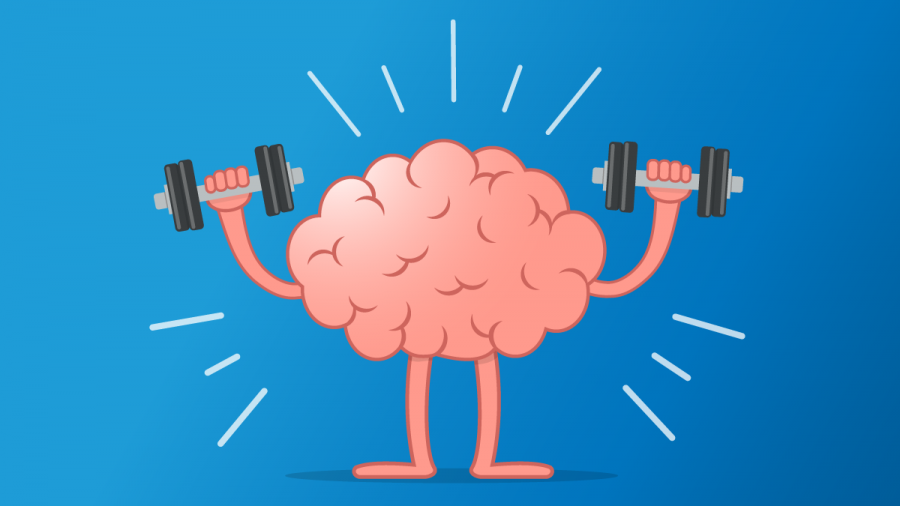Athletes: Importance of Taking Care of their Mental Health
Athletes have begun to open up about their mental health but have been met by criticism. What’s the role of mental health in athletics? Should athletes talk about their mental health?
November 3, 2021
Maintaining one’s health is extremely important for anyone but especially athletes. Their bodies and minds are put through constant stress and pressure while competing. However, unlike physical health, athletes face scrutiny when taking a mental break. Public audiences have criticized athletes for taking the time off for mental health reasons. Piers Morgans, BBC broadcaster and journalist, called out Simone Biles, who took such a break during the Olympic Games. Over Twitter, he wrote, “Are ‘mental health issues’ now the go-to excuse for any poor performance in elite sport? What a joke. Just admit you did badly, made mistakes, and will strive to do better next time. Kids need strong role models not this nonsense.” Yet, what the audience doesn’t understand is that mental health is just as important to playing the game as physicality.
Being an athlete can be draining for one’s mental health because it requires having to put up with criticism and immense pressure while being able to keep a cool head and the right mentality. Nonetheless, athletes, just like anyone else, need a break from that stress in order to function properly and perform to the best of their abilities. Without this break, their mental health starts to deteriorate and affects their performance. Simone Biles’ departure from the Olympics was brought on by the twisties, a disorienting feeling gymnasts get while twisting through the air. Experiencing the twisties can be extremely dangerous and scary because athletes lose their sense of position and struggle to locate the ground when trying to land safely. Other athletes have also struggled with mental health issues, like anxiety and depression, because of the pressure placed on their shoulders. Recently, Netflix released “Untold: Breaking Point”, which tells the story of Mardy Fish and how he struggled with anxiety while playing professional tennis. Similarly, Naomi Osaka pulled out of the 2021 French Open after being penalized for not doing a post-match press conference, which she excused herself from in order to focus on her mental health. The environment within sports can discourage athletes since many may feel weak for not being able to get past these issues on their own. However, despite this stigma, Many professional athletes started talking about their mental health and how taking breaks is important for anyone who deals with a lot of stress. BCA students have agreed that more athletes should talk about mental health and its importance.
Some of BCA’s very own athletes have felt the stress associated with playing a sport with 19 out of the 22 students agreeing they have felt the pressure to perform well. As a high school athlete, there are a lot of other priorities that can increase stress even more, such as grades and tests. In addition, an athlete may put additional stress on themselves as they expect to perform well every single time they compete. However, all of these pressures can make playing the sport even harder, so taking a break can be a beneficial way to focus on yourself and relieve stress. Many of the students who completed the survey suggested similar methods when taking a mental health break, but some also suggested finding an outlet to talk about your feelings like talking to friends or a coach. One student explained that one person’s version of a mental health break may look very different from another person’s. They suggest that an athlete should figure out what best works for them and to keep realistic goals.
A couple common signs of negative shifts in mental health include sleeping problems, irritability, limited motivation, low energy, and changes in eating. These patterns can be picked up by parents, friends, coaches, and/or fellow team members. In order to help the athlete, those who recognize this issue should reach out to the athlete and give them a space to discuss their struggles and what may be bothering them. In addition, the athlete should take some time off to reflect on themselves and do other things that bring them joy, such as hobbies. If they are a competitive athlete or one who follows a lot of other athletes online, it can be beneficial to take a break from social media as well. Social media can be harmful while trying to improve one’s mental health, even for those who are not athletes. Influencers tend to portray only the best parts of their lives without showing the more normal experiences. Viewers may compare themselves and their own talents to those unrealistic expectations. This can be true for athletes who see highlight reels of fellow athletes, causing them to feel inferior.
The benefits of taking a mental break would allow an athlete to perform better and feel more relaxed and happy. For most athletes, they initially play the sport because they enjoy it, but once it becomes a negative and stressful environment, it can be difficult to want to continue. The time off separates them from the stress and pressure, allowing them to still see the fun of playing. Stress can also become a distraction and make it harder to focus, which can prevent an athlete from playing to their full potential. Taking time off will allow athletes to not only improve their mindset and mentality while playing but also improve their performance on the field. As more athletes take time to care for themselves, the stigma surrounding mental health will disappear and instead allow mental health to be seen in a more positive light.






